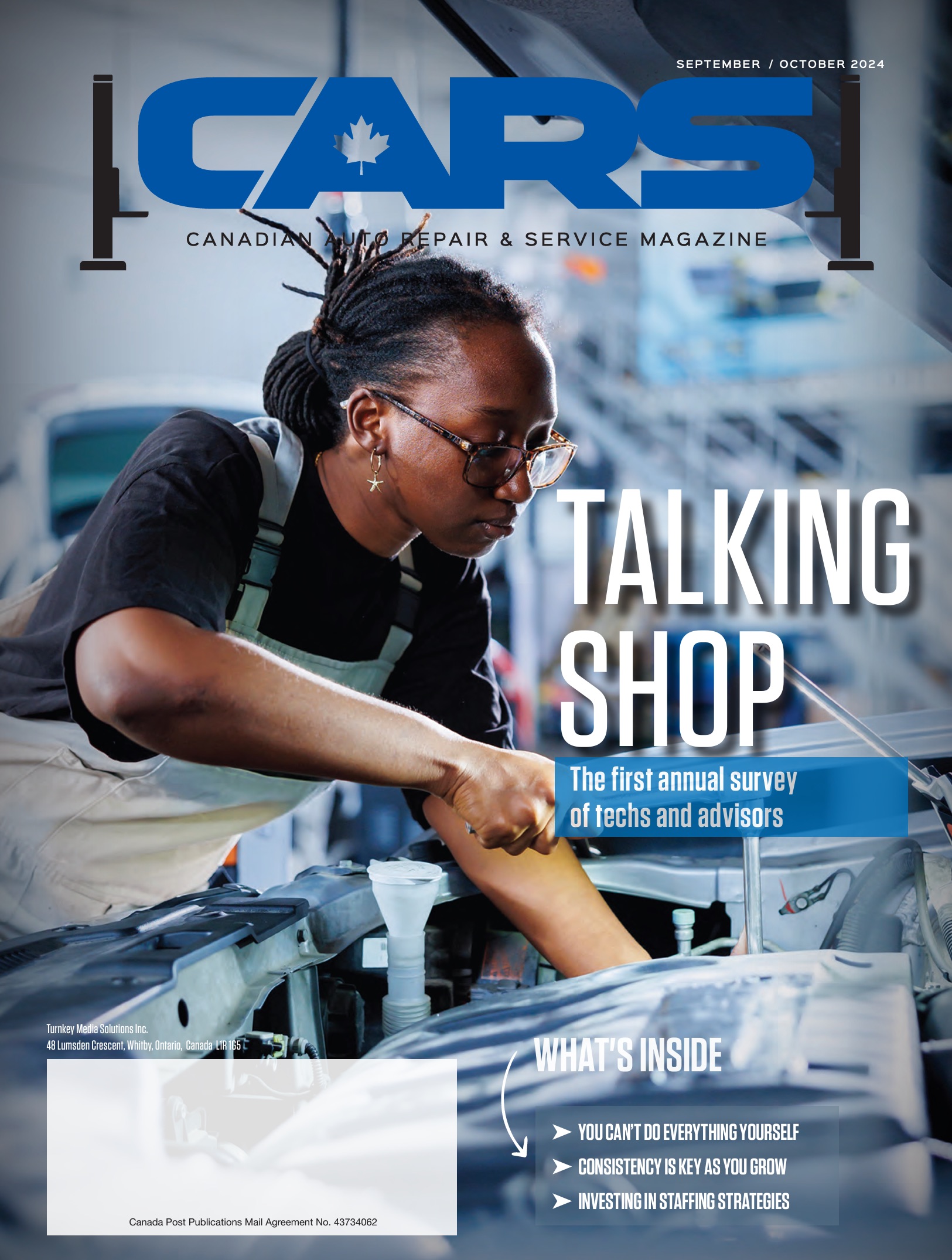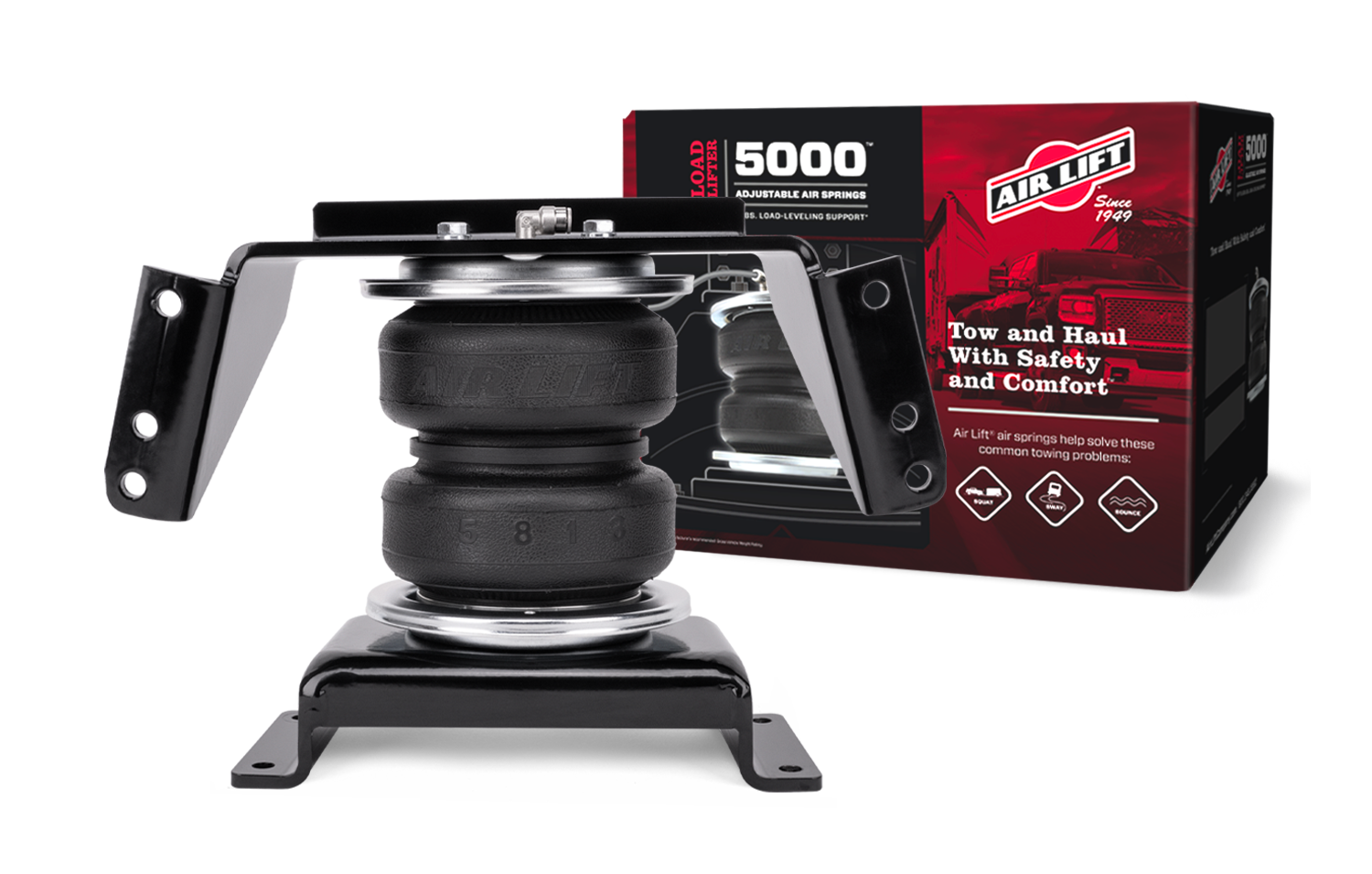
Many companies across various sectors will boast about why they offer the best service, focusing on the quality of the products they sell.
But if you were to ask shop owners, they might suggest that the automotive aftermarket is falling behind in this area.
The Jobber News Annual Shop Survey was sent out to readers of this magazine’s sister publication CARS to find out what has changed in the opinions of shop leaders over the last 12 months as some level of normalcy and consistency has settled into the industry.
Two years ago, availability was by far the top concern with it being highlighted in nearly 94 per cent of responses. Last year, it dropped to the mid-80s per cent range.
The narrative over those two years focused on the importance of relationships and its relegation to the back burner in 2022 before it returned as a top-three factor of importance.
Inventory seems to have improved but one thing is for certain — if you want to be a first-call jobber, having products in stock will be your bread and butter.
However, this alone can’t guarantee success. From the responses we received from shop leaders, it’s clear they expect more than just availability — price and quality are equally crucial.
Indeed, following availability, quality was the most frequently mentioned factor when respondents had the chance to comment.
Moreover, some are willing to overlook price concerns if their jobber provides high-quality auto parts and components.
“Having a relationship where my needs are prioritized and high-quality parts are available is worth way more to me than a few dollars of savings on parts,” one respondent wrote. “I sell time, which means I need good parts in a reasonable amount of time, so I can keep my techs moving and not have to do a bunch of warranty work.”
Indeed, this type of comment was common throughout responses. By having quality products, shops can’t use their time effectively. There is less worry about comebacks if they know what is being installed on the customers’ cars is a quality part.
“We want to be able to order our parts online and have quality parts available at a reasonable price,” observed one responder. “We want the parts quickly to keep jobs moving and the program system is just an added bonus.”
The survey was modified a touch from years past. Rather than being asked to pick all of the top reasons they consider when they call a jobber, they were asked to list the top one and then separately list other factors.
Availability/inventory reigned supreme on both counts. About 45 per cent picked that as their top reason with relationship trailing well behind at 26 per cent. Price rounded out the top three at 11 per cent.
When asked to pick the other factors, availability was selected by 65 per cent of respondents with price much closer at 58 per cent. Relationship placed third at 46 per cent.
Naturally, shops want their jobber to have every part readily available so they can get the work for the vehicle sitting in their shop completed. Easier said than done, it appears in some cases.
“We need parts today,” one respondent said, simply.
“We need availability and prompt delivery at a competitive price,” another said.
“You can’t sell/install what you don’t have,” read another response. “And if the supplier is ‘difficult’ then ‘everything’ is difficult. If inventory and relationship is good, all of the other factors mentioned can be worked out.”
One respondent outlined the importance to getting parts delivered to their shop quickly.
“We want to be able to get the job done as soon as possible to limit inconvenience,” they wrote. “We want prices to be competitive. We like to look up parts ourselves to make sure that we can ensure accuracy. I like to buy from people that care about succeeding (us and them).”
If a jobber can’t recognize the importance of a shop’s time, then the partnership is not worth having, outlined one response.
“I would like a jobber to be able to get me the proper parts, good brand selection and stand behind legitimate issues,” they added, before noting a common complaint that has been around for a long time.
“I also don’t want clients to tell me (and prove it) that they can get the same part at the same or lower price. All my time, as well as that of the jobber, has been lost/wasted and, therefore, lost revenue.”
The shop-jobber relationship may be one the most dynamic ones going. Few, if any, industries can say they can call a store, order a part and have it show up the same day, even within an hour.
But that doesn’t mean shops are dancing through fields of rainbows and lollipops over their relationship with their jobber. There are key issues they say often need to be addressed to enhance service levels.
“A knowledgeable counterperson and someone who can think out of the box is important,” explained one respondent. “Relationships help with preferences to brands.”
Another complained about the lack of specialized local knowledge. They would rather have someone with boots on the ground telling them what they need, rather than someone in an office who may be in another part of the country.
“The level of top-down corporate management is staggering,” they lamented. “They should put more faith in their local managers to decide what is and isn’t viable to stock locally. They know us better than anyone.”
For some, price isn’t as important when they know they have a solid relationship with their jobber. “Price is not always important as long as they have the parts. And intelligent counter employees are often few and far between,” one said.
On the topic of counter staff, even though talent options are limited, shops don’t have time to waste with someone who isn’t interested in the business.
“If you have a counterperson that does not know anything about vehicles, then that makes that business worthless. Then they should leave us as clients to look up our own parts by opening up their catalogues to us,” one respondent said.
They then went on to explain their frustrating process: “So many times I am looking for a certain part and know that they should have a listing. But the counterman has no clue where to look. Then I need to source a different shop that gives me a part number, then reach back out to the same person I originally spoke with but now giving a part number, who then does in fact have inventory for the original search.
“This leaves an enormous concern from these so-called questionable suppliers.”
Why they leave
Shops are pretty consistent with their reasonings for why they give up their first-call jobber. The top two most common phrases used to describe their desire to leave were product availability and quality of products.
One put the issue squarely on the shoulders of the counterperson.
“Counterperson ignorance. No other reason. Total ignorance of my time and time spent trying to get them to understand what I am looking for,” they complained.
They called on jobbers to be more thorough in their hiring practices to make sure they’re qualified to handle the job.
“Then add some training also. Don’t hire someone and leave him to answer calls knowing this individual knows absolutely nothing about the job,” they added. “That tells me this jobber has no interest in helping a clientele that took years to build up.”
Another hammered home issue on pricing, saying their jobber refused to believe their competitor was selling the same parts for less. And when confronted with data, brushed them aside.
Here’s what they told us: “Steadfastly refused to believe that their competition was considerably less than they were on identical parts, even after printing off months of proof, given to the rep to show the branch and regional reps. They cherry-picked one or two they were slightly better on and called it done. But just flat-out refused to believe they were on average 25-30 per cent higher cost.”
So this shop walked away from the relationship because of the frustrating experience, pointing the blame on the jobber becoming part of a larger entity.
“Too bad because we loved dealing with the rep and the branch. Great people, working under corporate myopia. This happened when they merged and became the largest jobber in North America,” they said. “Years later, we still price-check them on a regular basis but nothing has changed. They miss out on a share of my annual $400k-550k parts purchases”
It seems these grievances are impacting how many options shops are adding to their list of calls for parts.
Last year, 41 per cent of respondents said they contact just one or two jobbers for all their needs every month. That number is down to 35 per cent. Half of respondents said they’re calling three or four different jobbers per month. About 10 per cent are reaching out to five or six stores.
However, shops have not increased their reliance on dealers, compared to last year. Nearly half (46 per cent) said about one in 10 products they order are from dealers; 37 per cent said they get 11-25 per cent of product for dealers. Combined, 83 per cent said they get upwards of a quarter of their products from dealers.
That’s more or less in line with last year when 84 per cent said so.
Still, shops said they’re turning to dealers in part because of product availability and also quality.
“Slightly more due to availability and reliability of the parts,” one respondent said when asked if they were increasing their orders from dealers.
“Not sure of percentage but the increase has come from a complete lack of quality in many aftermarket parts,” noted a respondent.
Dealers are also being more competitively priced, one response noted. “Availability — some parts are not available from jobbers, parts that work. More and more aftermarket parts have too many failures,” they added.
One specifically pointed out oxygen sensors as an issue in the aftermarket. “Aftermarket just cant get it right. Have to continually price shop with dealer parts because a lot of times dealer prices are less than the aftermarket,” they said. “Unfortunately, you have to do what is best for the customer even if it means I lose my margins.”
Another complained about quality as a reason for turning more to the dealer for parts.
“I’ve been in business for 40 years and I am seeing too much white-boxing happening in the aftermarket,” they wrote. “Checking prices, dealerships are still in line and sometimes cheaper and better quality.”
Another respondent pointed out their frustration with their local jobber. The dealer is more of a one-stop-shop and seems to have a better grasp on their needs than the jobber.
“No sense in getting frustrated from a local jobber with no knowledge and getting wrong parts and wrong estimates,” they said. “I just resort to dealer purchasing. Chances are one-stop-shop with proper estimates.”
It’s a tale of two ends of the spectrum when it comes to online ordering by shops. Just more than half (51.4 per cent) of respondents said they order at least 70 per cent of their products online. Drilling deeper, 20 per cent say they each do 80-90 per cent and 90-100 per cent of their orders online.
The exact same number, 20 per cent, say less than 10 per cent of their ordering is done online.
So there are equal numbers of those doing almost all their parts orders online as there are doing almost none.
What do shops enjoy about ordering online? It seems to come down to the ease.
“Minimal issues with online ordering,” said one.
“Online ordering is the best. You have control of your order and are eliminating the counter person who may not understand your query or order requirements,” highlighted another.
Another noted that they know exactly what they need, better than the jobber store’s staff, so they go ahead and order it themselves and avoid the middle man, so to speak.
“We definitely order more online each year over year. We can order directly through our software (which saves a step). It works for efficiency and record keeping but not if you have product or technical questions,” noted one response.
“Online ordering is pretty good. Idle chit chat wastes time. They could do better by identifying quality of the parts listed,” observed a respondent.
For one shop, the owner has their techs order the parts so the onus is on them to get it right.
“I like someone to be accountable if the parts are not correct. My technicians do not want to make a mistake,” they wrote.
One respondent noted that they order online begrudgingly. “Not happy about online ordering but at times looking after the client is more important than the opinion of the jobbers,” they said. “The jobber could pay more attention to what we are working on and what we are ordering. We know what we want. We don’t rely on the jobber to know.”
It’s not a perfect system and there is room for much improvement. In particular, accurate on-hands numbers as well as a way to track the progress of the order are top requests of shops.
“The biggest issues is lack of communication if there is a problem with a parts availability. And also the lack of information pertaining to where parts are. Information is key, any jobber should know this,” one answer read.
“Sometimes the sites are not very accurate with in-stock, and/or availability. Real-time updates are important,” noted another.
“Jobbers are doing a decent job but sometimes stock of parts is an issue,” stressed one response.
Inflation challenges
Inflation hasn’t been kind to general consumers and those shopping in the automotive aftermarket are no exception.
According to DesRosiers Automotive Consultants, vehicle maintenance and repair saw prices increase in 2023. Service and replacement parts jumped 5.3 per cent and 5.8 per cent, respectively.
For the most parts, shops are navigating as best they can. Most customers seem to expect the increased prices. Some shops note that low prices are certainly not the way to go in this business.
“Low price is not an advantage,” one respondent noted. “Customers want quality, installers want proper fit — not junk.”
Another respondent agreed. “Cost vs. quality is more important. First time fixed should be the priority so even the economy parts need better quality control.”
“We are very clear to customers that cheaper parts are not always the best choice,” echoed another.
But for the most part, shops are keeping their margins the same and passing on the higher costs to customers.
“Prices go up, up, up but we have to pass it on to the customer. They understand that it is the current economic situation that we are all in. Inflation has not impacted the parts we order. We continue to purchase what we (our customers) need. We try to always by ‘value’ (good quality at a fair price). The jobbers meet our needs and generally do a fantastic job of it,” one respondent said.
Another also noted the helpfulness of their jobber.
Consumers and all of us understand that prices on everything have gone up. As an independent shop, we need to make sure that we are current with our prices to stay in business. Our jobber sales reps help. I will not sacrifice quality over price,” they said.
But it’s hard to justify price increases when suppliers are not keeping up with quality, one respondent pointed out.
“It has to be noted that even ‘good’ name brands of the past have had a sharply noticeable increase in defective or poor fitting products over the last decade. Too many parts manufacturers are trading on their good name/solid reputations delivering poor product,” they said.
This is pushing shops to look at dealers for parts.
“Because we always want to sell only quality, hence we have to deal primarily in OEM parts. The aftermarket has failed miserably on the quality score,” they warned.
The article originally appeared in the May issue of Jobber News















Leave a Reply